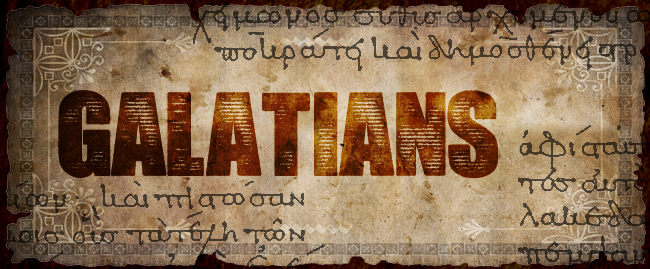This Tuesday we will be reading through Galatians 2:15-21. This passage, along with Romans 3:21-31, is the basis for the Protestant doctrine that we are justified by faith, not by works. I have attached Martin Luther’s commentary on Galatians 2:16. It is Luther’s articulation of this verse that forms the foundation for this doctrine. For Luther, no work – from circumcision to loving your neighbor as yourself – can ever make us right with God. Rather it is only Jesus Christ who “is the forgiver of sins and Saviour” that works the reconciliation between God and us, and whoever places his faith and confidence in Jesus as the forgiver of sins is made righteous before God. If you have time this weekend, please read this short excerpt.
Contemporary Biblical scholarship has come to see this verse in a somewhat different light. Galatians 2:16 is generally translated as “a person is justified not by works of the law but through faith in Jesus Christ. And we have come to believe in Christ Jesus so that we might be justified by faith in Christ.” In Greek, the first italicized phrase is “pisteos Christou Iesou.” This phrase doesn’t contain an explicit preposition and therefore can also be translated as the faithfulness of Jesus Christ. Under this reading, it is the faithful obedience of Jesus (who fulfilled the law) to God the Father which justifies or vindicates humanity. The act of justification is Jesus’ actions, not ours. The second italisized phrase speaks of our faith in Christ Jesus. The Greek word for “faith” is episteusamen whose root is pisteuo (which is generally translated as “faith” or “belief”). The Greek word, however, does not have the connotation of “belief” as a belief in a historical or factual proposition (“Do you believe in Santa Claus?”). Rather the connotation is more a statement of “trust” in a fiduciary capacity (“I repose faith and trust in my accountant to accurately report my tax liability”). In other words, God established the fundamental gift of righteousness through Jesus’s obedience on the cross; and we appropriate that gift by trusting in Jesus. It is the difference between believing in God and believing God. Two good resources to go further in-depth are found in David Bentley Hart’s New Testament, pp.557-59, N.T. Wright’s Justification, pp. 111-22, or Luke Timothy Johnson’sThe Writings of the New Testament, p.333
For Tuesday think through the implications for us as to what Paul is teaching in this passage. In Paul’s time, the issue was circumcision and table fellowship. What are our issues today that this teaching should be applied to? And what does it look like for the Church to make this application?
Dinner is at 6. Menu is paninis. Discussion about 6:45. You do not have to have read anything to join us and participate in the discussions. Hope to see you here and please bring a friend.
Then as one man’s trespass led to condemnation for all men, so one man’s act of righteousness leads to acquittal and life for all men. For as by one man’s disobedience many were made sinners, so by one man’s obedience many will be made righteous.
Romans 5:18-19


Pingback: Philippians 3:8-11, Gaining Christ – Ancient Anglican